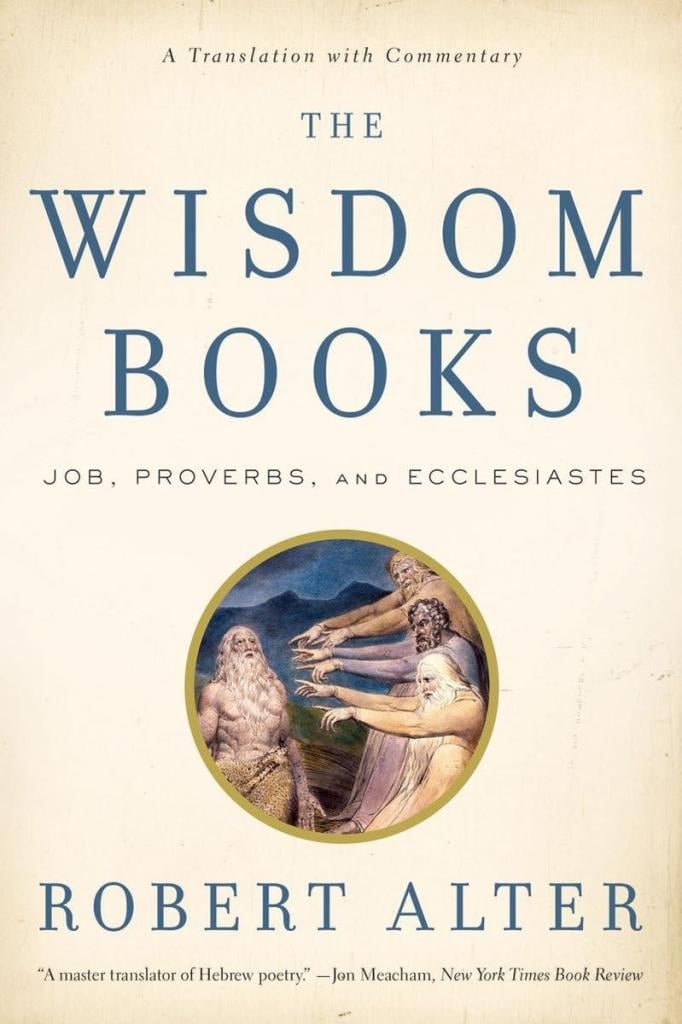Some of the proverbs involve interesting analogies, for instance Prov. 19.12-13– “A roar like a lion, the wrath of the king, but like dew on the grass, his favor.’ Disaster to his father, a foolish son/ and a maddening drip, a nagging wife.’ Or in some cases personification gets a point across— ‘Wine is a scoffer, hard drink is rowdy; all who dote on them get no wisdom.” (20.1).
Sometimes one gets the impression that the author of these proverbs, while acknowledging human wickedness, does not think that humans are inherently sinners or fallen creatures. But then one runs into a saying like Prov. 20.9–‘Who can say ‘ I declare [or I have made] my heart pure, I am clean of my offense.’ Later Jewish theology taught the notion of the yetzer hara and the yetzer tov being in all persons, that is the inclination to do either evil or good is in all humankind. The problem with idea is it does not explain why all human beings choose sin at various points in time. If they have equal inclinations in either direction, why is it true ‘that all have sinned’. The theology in Rom. 1.18-32 and 5.21ff. makes better sense.
‘Laying bare secrets,the gossip goes around; don’t trust yourself to a blabbermouth.’ (20.19).
“Do not say ‘Let me pay back evil; Hope for the Lord, that he gives you victory.’ (20.22). This proverb is similar to ‘Vengeance is mine says the Lord, I will repay’. So the sage is teaching that one should trust in the God of justice, rather than taking matters into one’s own hands.
There is a repeated theme warning against unfair business practices, like using cheating scales, or two different weighing stones (20.23).
‘The splendor of young men is their strength/and the glory of elders their gray hair.’ (20.29). This is also a repeated theme in Proverbs. The other day I was at the car wash, in line and an attractive young lady was taking my credit card. When I thanked her for her service, she said ‘well its a pleasure to serve a silver fox like you’. This not only surprised me, it made my day. The elderly don’t often get such compliments.
At 21.3 we hear another repeated theme: ‘Doing righteousness and justice is choicer/more important to the Lord than sacrifices’. This is a theme the prophets like Amos will pick up and amplify, and for that matter so does Jesus in his critique of the Pharisees.
“Better to dwell in the corner of a roof, than in a spacious house with a quarrelsome wife.’ (21.9). Lest we see this as an unkind caricature of all women, which it isn’t (its more like Shakespeare’s The Taming of the Shrew) there are also various proverbs praising a wife as in Prov. 31. But notice the parallel to vs. 9 in vs. 19 “Better to dwell in a desert land/than with a quarrelsome angry wife.’
On the sovereignty of God, “A horse is readied for the day of battle/but victory is the Lord’s’ (21.31). In light of other proverbs this cannot be taken to mean– ‘don’t go to war, let God sort things out.’
Prov. 22.6 is one of the most well known of the proverbs “Train up a lad in the way that he should go [or according to his ways]/ and when he grows old, he will still not swerve from it”. As I have noted before, these proverbs are generalizations that are often true, but they are not always true.
There are a couple of interesting sayings that remind us of the rules of those societies. Exod.22.25-26 makes clear that one is not to confiscate a poor man’s bedding just because he can’t pay a debt. The proverb is ‘If you have nothing with which to pay, why should your bedding be taken from under you? (22.27).
“Do not shift the age-old boundary stone/that your forefathers set up”. (22.28). This reminds us that owned property should be inalienable and not be taken away by subterfuge. Cf. 23.10 which adds to this injunction “and do not enter the field of orphans, for their redeemer is strong, he will argue their case against you.” Redeemer here is a translation of goel, which could refer to a kinsman redeemer who comes to protect the orphan and his property, but it could also refer to the Lord.
“Do not be with the guzzlers of wine/with those who gorge on meat. For the guzzler and the gorger will lose all/and slumber will cloth him in rags.” (23.20-21).
There are numerous exhortations in the proverbs about using physical punishment on one’s son (vss.13-14). The reason is to prevent the child from going morally astray or engaging in dangerous activities which could land him in Sheol– the land of the dead.













